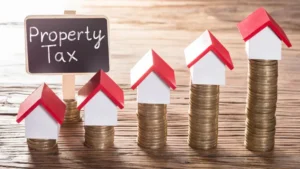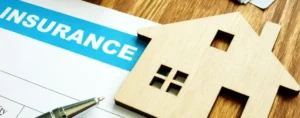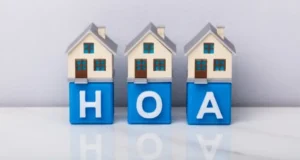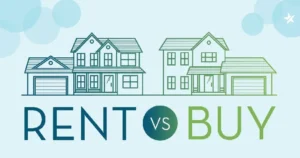If you have bad credit, you know how difficult it can be to get approved for a loan. Whether you need funds to cover an unexpected expense, catch up on bills, or make a necessary purchase, it’s challenging to find lenders willing to work with lower credit scores. Still, there are several loan types and strategies you can consider if you have poor credit.
Any lender—be it for a personal loan, mortgage, or auto loan—will review your credit score to determine eligibility and interest rates.
In this article, we’ll break down the various bad credit loan options available, highlight where to find them, and provide tips to secure more favorable terms. We’ll also discuss which types of loans might be beneficial and which ones to avoid.
RATE SEARCH: Check Current Mortgage and Refinance Rates
Bad Credit Personal Loans
A personal loan can provide extra cash for almost any purpose. Personal loans are unsecured loans typically ranging from $1,000 to $35,000, with repayment terms of 12-24 months. They’re also known as installment loans because you make a fixed monthly payment until the loan is fully repaid.
However, if you have bad credit, your personal loan options will be more limited. Many lenders may only offer amounts between $250 and $5,000, often at high interest rates (ranging around 18%-29%). While a personal loan can help you stay afloat if you’ve lost income or are facing emergency costs, it’s not a long-term financial fix.
Good Reasons to Get a Personal Loan:
- Cover mortgage, rent, or car payments temporarily
- Keep current on utility bills
- Replace or repair essential household items
- Stay current on credit cards if you’re between jobs
Bad Reasons to Get a Personal Loan:
- Debt consolidation (if the new rate isn’t lower than your current rates)
- Vacations or luxury purchases
- Buying a car (auto loans may be cheaper)
- Entertainment or non-essential expenses
- Home improvements that can wait
What to Watch For:
Expect a high interest rate with a bad credit personal loan. Financing non-essential purchases this way can lead to excessive costs over time. If your goal is debt consolidation, make sure the personal loan’s interest rate is actually lower than what you’re currently paying. Otherwise, it doesn’t help your financial situation.
If you have outstanding collection accounts, consider disputing inaccuracies on your credit reports or negotiating a “pay for delete” agreement. Remember, merely paying off collections won’t automatically boost your credit score—removal of negative items is key.
Pros of Personal Loans:
- Quick access to funds
- Can help you stay current on crucial bills if money is tight
- Fixed monthly payments over a set term
Cons of Personal Loans:
- High interest rates if you have poor credit
- Potential to worsen long-term financial health if used repeatedly
- Large portion of each payment may go toward interest
Recommended Bad Credit Personal Loan Lender:
Payday Loans
Payday loans are short-term, small-dollar loans (often $1,000 or less) that are due on your next payday. They come with exceptionally high fees and interest rates—up to 400% APR or more. They require no credit check, making them accessible, but the cost can be overwhelming.
A payday loan might make sense in extreme emergencies when you need cash within 24 hours. Use them sparingly and only if you can fully repay the loan by your next paycheck. Consider alternatives like personal loans, credit cards, or negotiating with creditors before resorting to a payday loan.
Good Reasons to Get a Payday Loan:
- Prevent eviction or repossession by making overdue payments
- Repair a vehicle that’s critical for transportation
- Keep essential utilities from getting shut off
- Replace an emergency appliance, like a refrigerator
- Quick loan application and funding
Bad Reasons to Get a Payday Loan:
- Debt consolidation (cost is too high)
- Vacations, entertainment, or other non-urgent purchases
- Home improvements that can wait
What to Watch For:
Payday loans are considered predatory by many financial experts. A small payday loan can double or triple in just a few short months. If you must get one, repay it as soon as possible to minimize interest costs.
Pros of Payday Loans:
- Immediate cash availability
- No credit check required
- Helpful in dire emergencies
Cons of Payday Loans:
- Incredibly high interest rates (up to 400%)
- Short repayment terms and potential for rollover fees
- Considered predatory and not recommended long-term
Auto Loans with Bad Credit
If you have bad credit and need a car, you can get an auto loan—but expect a high interest rate (around 15-20%) and a required down payment (often 10-20%). While the terms may not be great, making on-time car payments can help rebuild your credit. After improving your score, you might refinance for a better interest rate or trade up to a nicer vehicle later.
Best Bad Credit Auto Loan Lenders:
- Carvana
- Auto Credit Express
- DriveTime
Car Title Loans
Car title loans are secured loans using your car’s title as collateral. They’re short-term, high-interest loans (up to 400% APR). You must own your vehicle outright. Because these loans are considered predatory and are only legal in some states, it’s best to avoid them entirely. If you can, seek better alternatives like a personal loan, credit card, or negotiating payment plans.
Credit Cards for Bad Credit
A credit card, even one for people with poor credit, can provide flexible access to funds. Although approval odds may be lower and initial credit limits modest, a secured or subprime credit card can help rebuild your credit history. If you pay your balance in full each month, you’ll avoid interest charges entirely.
Pros of Credit Cards:
- Revolving line of credit
- Helps build credit when used responsibly
- No interest if paid in full monthly
- More convenient and generally lower rates than payday loans
Cons of Credit Cards:
- High interest rates for poor credit applicants (up to 29.99%)
- Temptation to overspend
- Low minimum payments can trap you in long-term debt
Best Credit Cards for Bad Credit:
- Credit One Bank® Unsecured Platinum Visa®: Offers cash back rewards and free credit score tracking, with an annual fee.
- First PREMIER® Bank Credit Card: Reports payments to all three credit bureaus, helping rebuild credit with responsible use.
Bad Credit Home Loans
Mortgages for borrowers with poor credit have become more accessible in recent years, though still not as lenient as before the 2008 housing crisis. Subprime mortgages are slowly returning, but they come with stricter requirements and possibly higher rates.
FHA Loans:
Insured by the Federal Housing Administration (FHA), these loans are ideal for homebuyers with lower credit scores. If you have a 500 credit score, you may qualify with a 10% down payment. A 580 score only requires 3.5% down. FHA loans offer flexible guidelines and low rates, making them the top choice for most buyers with bad credit.
Pros and Cons of FHA Loans:
| Pros | Cons |
|---|---|
| Low credit score requirements | Lower loan limits |
| 3.5% down with 580 score | Upfront MIP fee required |
| Low interest rates | Mortgage Insurance Premium (MIP) for life |
| Easier to qualify for | Strict underwriting |
| Down payment can be a gift | Primary residence only |
| Fixed & adjustable-rate options | |
| Up to 50% DTI ratio allowed | |
| Loans are assumable | |
| Seller can pay up to 6% of closing costs |
Refinance Programs for Borrowers with Poor Credit
Home Equity Loans:
If you have equity in your home, you can borrow against it. Home equity loans usually have interest rates between 5%-8%, significantly lower than personal or payday loans. However, qualifying with bad credit is tough, and you’ll be taking on a second monthly payment.
HELOC (Home Equity Line of Credit):
A HELOC works like a credit card, with interest charged only on what you borrow. It’s flexible and potentially cost-effective, but you must have sufficient equity and meet credit requirements.
Cash-Out Refinance:
Refinancing your mortgage and pulling out cash at up to 80% of your home’s value can be a great option, even with bad credit. Because the new lender is the sole lien holder, they might offer favorable terms. You get one low-rate mortgage payment and cash for any purpose, such as paying off debts or making home improvements.
Cash-Out Refinance Pros and Cons:
| Pros | Cons |
|---|---|
| Lower interest rate than personal loans | Closing costs comparable to a regular mortgage |
| Pay off high-interest debt | Reduces home equity |
| Make home improvements, repairs | Home at risk if payments aren’t made |
| Single mortgage payment | May increase monthly mortgage costs |
| Potential tax-deductible interest |
Credit Unions
Credit unions often prioritize community relationships over strict credit guidelines. If you’ve been a member for a while, they may offer personal loans at reasonable rates, even with bad credit. Credit unions provide a variety of loans—auto, personal, mortgages—and may be more flexible than big banks.
What is Considered Poor Credit?
Generally, a credit score below 620 is considered subprime. Scores lower than 580 are often viewed as “bad.” The lower your score, the fewer options you have. Here’s a quick breakdown:
- 750+ = Excellent
- 700-749 = Great
- 660-699 = Good
- 620-659 = Fair
- 580-619 = Poor
- 579 or lower = Bad
Get Your Free Credit Report and Scores
Before applying for a bad credit loan, pull your free credit report at AnnualCreditReport.com. Review it for errors and dispute any inaccuracies. Websites like Credit Karma, Credit Sesame, and WalletHub offer free consumer credit scores and monitoring. While these aren’t FICO scores, they give you a good idea of where you stand.
Increase Your Credit Score Before Applying
Improving your credit, even slightly, can help you get better loan terms:
- Pay Down Balances: Lowering your credit utilization ratio can raise your score quickly.
- Become an Authorized User: A trusted friend or family member can add you to their credit card to boost your history.
- Remove Late Payments: Contact creditors and request a goodwill adjustment to remove past late payments, if possible.
The Bottom Line
Bad credit loans can serve as a short-term lifeline if you use them wisely and repay them promptly. While they come with disadvantages—like high interest rates—proper use can keep your finances afloat during tough times and even help rebuild your credit.
Avoid predatory lenders, and consider alternatives like credit cards (if you can pay them off monthly), credit unions, or FHA home loans. Be proactive about improving your credit before applying, and always weigh the pros and cons of each lending option to ensure you’re making the best financial decision.
Frequently Asked Questions
1. What credit score is considered bad?
Any FICO score below 580 is generally considered bad, making it harder to secure favorable loan terms.
2. Can I still get a loan if I have bad credit?
Yes, options exist, including personal loans, payday loans, FHA mortgages, and credit union loans, but they often carry higher interest rates.
3. Are payday loans safe to use?
Payday loans are risky due to extremely high interest rates. They can help in emergencies but should be repaid quickly to avoid debt traps.
4. Can improving my credit score help me get better loan rates?
Absolutely. Paying down balances, removing late payments, and becoming an authorized user can increase your score and unlock better rates.
5. Do credit unions offer loans for bad credit borrowers?
Yes. Credit unions often consider your overall relationship rather than just your score, potentially offering more favorable terms.
6. What are the best mortgage options for bad credit?
FHA loans are often the best choice due to their low credit score requirements and smaller down payment options.
7. Can I refinance if I have bad credit?
Yes, through cash-out refinances or home equity products, though eligibility and rates depend on your equity and credit profile.
8. Will paying off a collection improve my credit score?
Not necessarily. Paying off a collection won’t automatically boost your score unless it’s removed entirely from your credit report.















